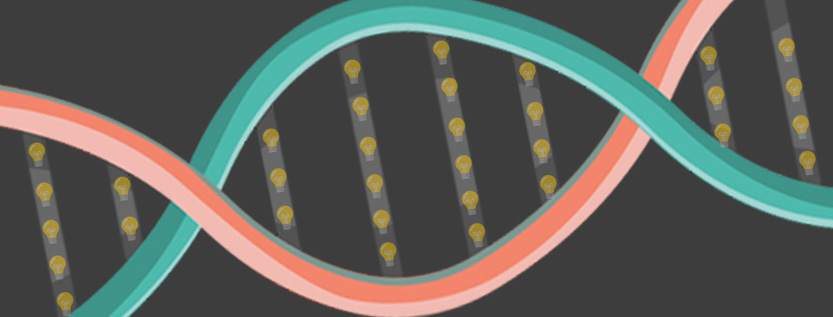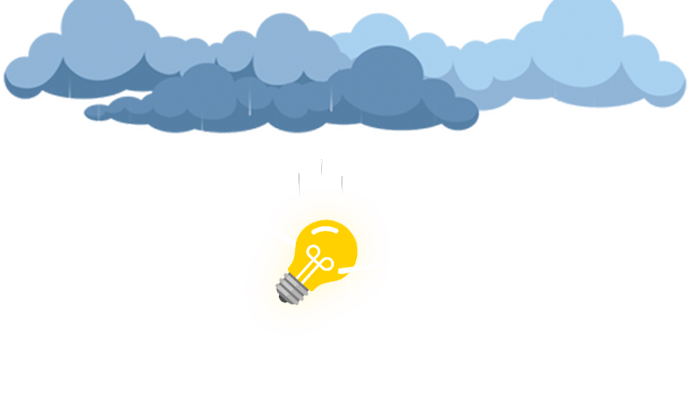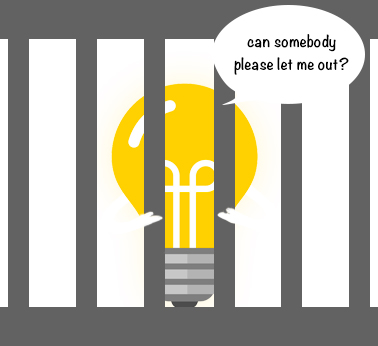
What makes us creative? It may be the way we approach circumstances or provide solutions to issues. Or it may be the way we concoct a new product using different parts and making them work as one. Whatever it is, as humans, we grow up naturally curious; but as we get older, our creativity is slowly stifled through mundane jobs, health problems, or bills to pay. So, we spend years trying to recapture the effortless creativity of our youth, which now seems to only belong to innovative geniuses or renowned artists. But do not despair because there are a number of creativity myths that show us that not all is lost. Creativity belongs to everyone, not just the select few.
The good news is: not everything we believe about creativity is true. It's not just a product of an inspirational upbringing, and it can be used in every aspect of our lives. The following creativity myths give us hope that it is possible to be creative and there's no specific formula to attain it.

We sometimes sit around hoping that the clouds will open up and the perfect idea will float down from the sky. Unfortunately, that belief leads to a lot of wasted time sitting around and doesn’t encourage productivity. We can't expect wonderful ideas to pop up in our dreams, either. The famously described “eureka” moments usually happen after hours spent deliberating on a problem. In other words, it’s not magic, it’s your subconscious!
How could creativity possibly be passed down through your DNA? No data has been found to support this theory of a special "creative gene." Creative people have been found to emerge from totally non-creative walks of life, the same way that some children in artistic families might lack the qualities themselves. It's something we can seek and acquire at any stage in our lives, proving we're committed to the task.

Although some lawyers might argue this, ideas are not proprietary. Since the beginning of time, people have shamelessly copied off each other and developed their own original spin on ideas that already exist. Ideas are constantly recycled in different ways and given a fresh look. There’s no shame in this, and it doesn’t make you any less creative. Therefore, being able to look at a product or service and determine what it lacks so that a better version can be created is what business is all about.
Contrary to popular belief, creativity can come in all shapes and sizes. You don't have to be a Picasso or Beethoven to preach about creativity; you can find it in anything from scientific breakthroughs to politics. So, if you're brainstorming non-traditional solutions to common problems (design thinking), you're being creative, whether you're Beyoncé or Stephen Hawking.

As humans, we're all born with some natural amount of curiosity and creativity. Children are always asking questions and exploring their surroundings. As we grow older and learn about the world, our creativity and curiosity fades, but that doesn’t mean we can’t relearn our old way of thinking. Thankfully, you can learn to be creative at any point in your life, as long as your way of thinking is challenged and pushed to create solutions.
It’s difficult to pinpoint exactly where creative tendencies arise (nature vs. nurture), but we do know it’s not something to rely on your DNA for. We also know that creativity can be learned (it's not too late!), ideas are constantly stolen and recycled, and they most definitely will not float to you in your dreams (unless you're so obsessed with solving a problem that you're dreaming about it; in that case, dream on). At the end of the day, creativity is about creating, no matter what your passion is.
At energyhill, we work to put creative solutions into practice for businesses. Our marketing, brand, and design services help companies stand out and thrive. We give your brand the voice is needs to find and connect with your audience. Contact us for a consultation.
"*" indicates required fields